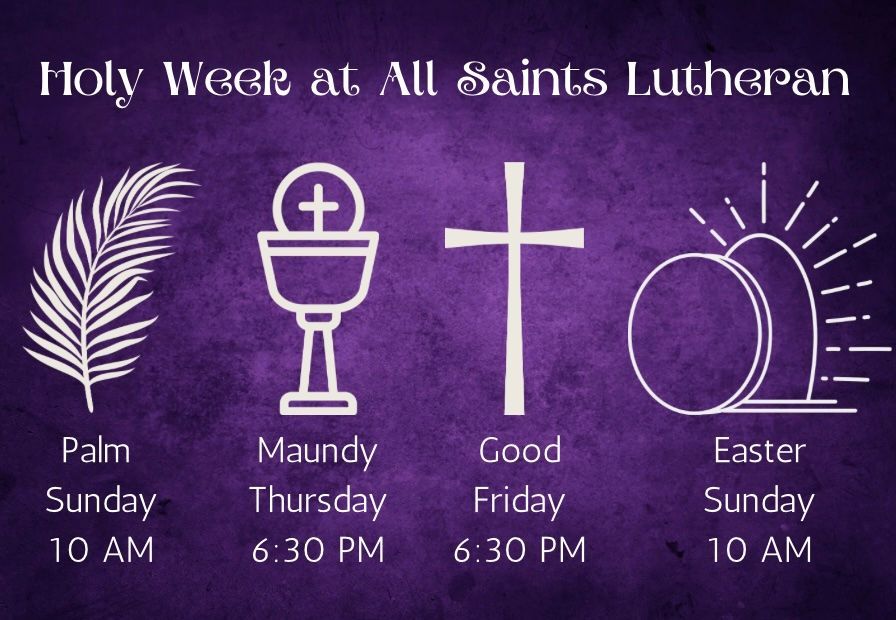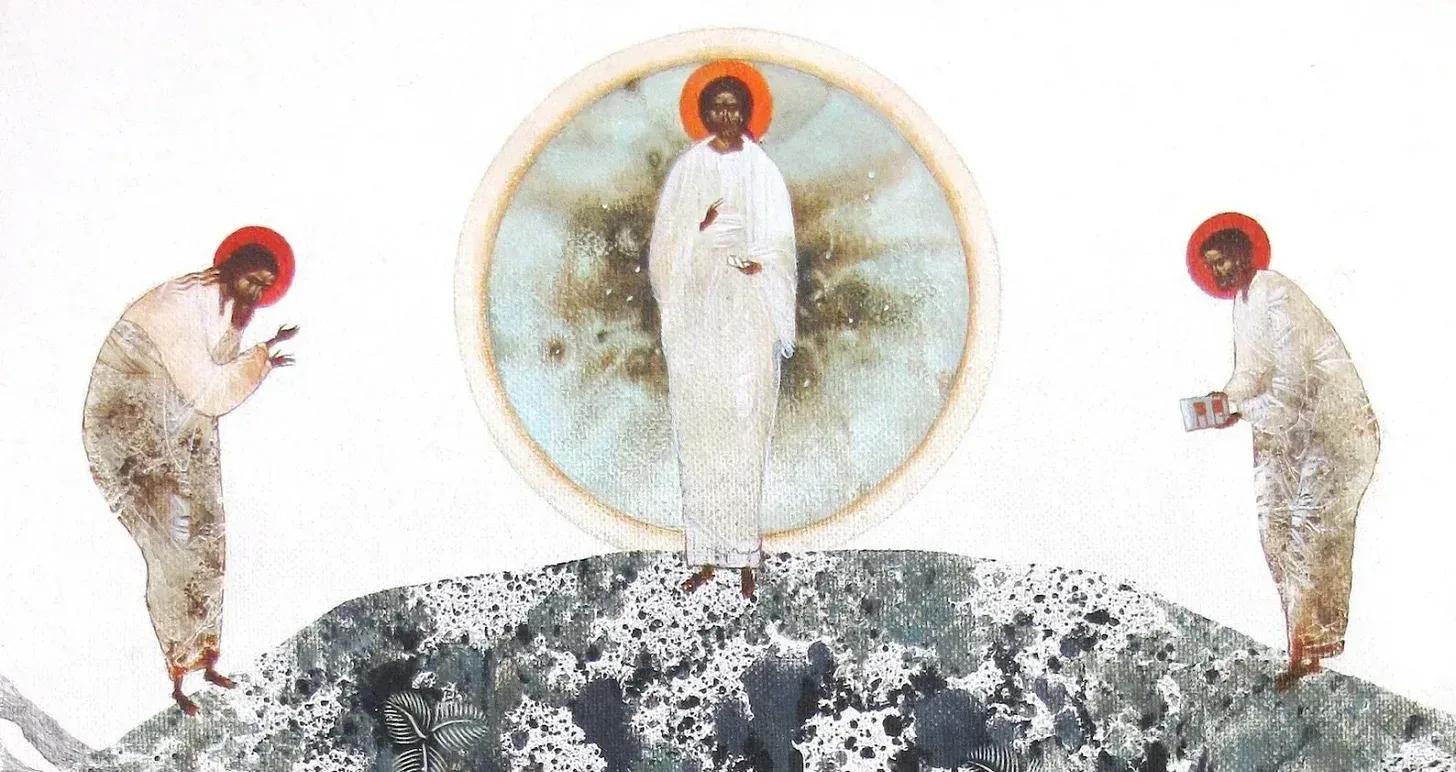Fourth Sunday in Lent, March 30, 2025
“There was a man who had two sons.”
This is how Jesus begins this parable
we have come to call the Prodigal Son.
There was a man who had two sons
and one day the younger son
came to the father
and asked for his share of the inheritance.
The father gave his son his share of the property
and the son left to make a new life
in a new place.
The younger son used his fortune
to buy friends
and throw parties.
Then tragedy struck.
There was a famine.
And the younger son
ran out money
and ran out of friends
and wound up
feeding pigs
and wishing he could eat so well.
So,
the younger son decided to go home.
“I can’t just walk up to dear ol’ dad
and expect him to feed and clothe me,”
the younger son thought to himself.
“I’ve burned that bridge.
I can’t be his son.
But I can be his slave.”
So, the son goes home
and as he nears the house
his father,
who’s kept his eye on the horizon
ever since the younger son disappeared behind it,
runs to meet him on the road.
The younger son
can’t even get out the little speech
he’s been rehearsing the whole way home.
The father won’t have it.
“Quick!”
the father shouts to a slave,
“Get a robe! Get some shoes!
Get a ring!
My son is home!!
I thought you were dead,
But you’re alive!
We’ll have a party!
I’ve been fattening up a calf for just this reason!!
We have to celebrate!!”
This is where the older brother comes in.
Maybe it’s the end of the day
and he’s come from the field for dinner.
Maybe the sound of music
or the smell of the roasting meat
drew him home in curiosity.
Whatever the reason,
When a slave
says the party is for his younger brother
he’s indignant.
He cannot,
WILL not
share this meal.
“Look how many years I’ve stayed here serving you,”
protests the older son.
“never giving you one moment of grief,
but have you ever
thrown a party for me and my friends?
Then this son of yours
who has thrown away
your money on whores
shows up
and you go all out with a feast!”
Now,
If we’re being honest,
I’m sure most of us can concede
that the guy has a point.
I mean,
this older son
has stayed
and done his job,
honored his father,
as the law commands.
He’s been there the whole time
and now he’s expected to celebrate
the return of his
whoremongering little brother?
I mean,
for heaven’s sake,
no one even told him about the party!!
He had to ask a slave what was going on.
I’m not sure I would have gone in either.
Maybe you’ve had this same feeling.
Maybe you’ve lost a brother or a sister
to years of addiction
and your Mom or Dad
seem to be enabling them.
Maybe you’re working harder
and longer,
struggling to make ends meet,
and folks who don’t seem to work at all
are eating up your tax dollars
in social services.
Maybe you’ve been in line at the grocery store
behind someone speaking Spanish
and using an EBT card
and thought to yourself
“I can’t believe I’m paying for that.”
Maybe you’ve been angry
that so much time and resources
have been spent on wars in other countries
when there are so many problems in this country.
The rising tide of nationalism
and classism in our nation
has been exploited
to drive a wedge between neighbors,
even between family members.
Those of us who were born citizens,
or had access to the resources to become citizens,
we,
like the older brother,
may see the plight of our Latinx siblings,
the quagmire of foreign entanglement,
the rising food prices and falling stock prices
and say,
“Not it!
Not my problem.
You need to stay where you are,
fix your own country
make your own money.”
This is what the older brother means
when he says
“this son of yours.”
He means,
“this is your problem,
and not mine.”
This thinking
largely comes from the fact
that we have been fed a steady diet
of individualism
and hyper-capitalism
that teaches us that
life is everyone for themselves,
the rich have worked harder than the poor,
and that with enough work
we too will be rich.
We have no responsibility
for anyone
but ourselves.
What I have
I earned,
I deserve.
If you don’t have,
you did not earn,
and do not deserve.
But Jesus’ parable leads us in a different direction.
‘Son, you don’t understand,”
the father says to the older brother.
“You’re with me all the time,
and everything that is mine is yours—
but this is a wonderful time,
and we had to celebrate.
This brother of yours was dead,
and he’s alive!
He was lost,
and he’s found!”
A clean conscience needs no mercy,
and the older son wants the younger son to pay,
to work for it,
to deal with his problems on his own,
just like he had.
But the father reminds the older son
that everything he has
he has by the same benevolence
that killed the fatted calf
to celebrate with the younger son.
Where the older son
wants to distance himself from
the younger son,
the father calls him a brother.
“this brother of yours.”
This meal is not just a party,
it is an act of reconciliation.
You see,
this feast not only reconciles father to child
but child to child,
brother to brother,
and this feast,
by which the father receives back his son,
is the same feast by which the older son
receives back his brother.
The feast of our reconciliation is the Eucharist,
where we are not only reconciled to our Parent,
but to each other,
brother to brother,
sister to sister,
sibling to sibling.
God is reconciling the world to Godself
and to each other.
No matter how far away the younger son went,
how much he squandered,
how shameful his living,
how little he thought he deserved it,
he was always a son,
always a brother.
And no matter how much time
and energy is spent working for the father,
doing what is right,
avoiding what is wrong,
the older son is no more a son that the younger.
Nothing could undo
or augment
their relationship to their father and brother.
But by this celebration feast,
each could begin to renew his relationship
with his father and brother.
Beloved,
there is nothing in all of creation
that could ever separate us from the love of God.
But none of us are only children.
This meal that gives us back
our relationship with God our Parent
also gives us back our neighbors
as brothers,
as sisters,
as siblings.
We can no longer say
“This son of yours is here illegally.”
“This daughter of yours is not my responsibility.”
Because we are God’s children too,
and every child of God is our sibling,
our responsibility.
This feast of our reconciliation
is not a private meal for two,
but an open invitation
to celebrate
that we are all God’s family
by the same grace.
We were dead
and are now alive!!
We were lost
and are now found!!
And this is something to celebrate!!
AMEN.










